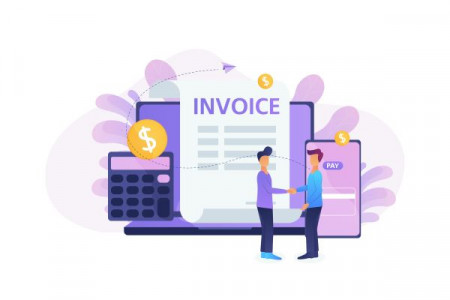Small Businesses Risking Vendor Relationships With Late Payments

HOUSTON, March 9, 2023 (Newswire.com) - Leading invoice funding company Charter Capital says late vendor payments are creating more friction between small businesses and their suppliers. The issue and potential solutions for delinquent small businesses can be found in "9 Tips for Funding and Managing Vendor Payments," which is now live on charcap.com.
The latest publication draws on research from various PYMNTS surveys, which indicate that three-quarters of procurement professionals believe late payments strain business relationships. Despite this, 41 percent still paid at least one late fee in the previous year. Roughly half acknowledged that more than 10 percent of their payments contained late fees.
"This is significant because companies that don't prioritize vendor relationships are putting their businesses at risk," explains Joel Rosenthal, Co-founder and Executive Manager at Charter Capital. "Businesses that pay vendors late often lose preferential pricing, so in addition to getting hit with a late fee, they're paying more with each order. They're also more likely to get cut off when there's a supply chain disruption, which may mean they can't fulfill their own orders."
Data entry errors, difficulty managing spending, and lack of real-time data are key contributors to delinquent payments, Rosenthal notes. How each issue manifests itself will vary though. For instance, some businesses may not be aware that multiple people within the company are paying for the same subscription, so the business winds up paying multiples of the fee. Paying for unused subscriptions is also a common issue, which can easily eat up hundreds, if not thousands, of dollars each year.
Rosenthal says that accounts payable (AP) automation software can reduce or eliminate these concerns, but only half use any kind of automation software to manage non-payroll spending. Having working capital on hand for vendor payments is also essential.
"A business can do everything right and still have a working capital gap due to a spike in activity or rapid growth," Rosenthal continues. "Even if the business doesn't usually require additional capital, it should have access to funds to ensure it can keep up with vendor payments when an issue arises.
He notes that invoice factoring is ideal in these situations because companies like Charter Capital don't have monthly fees or minimums. A business can set up an account and access funding only when necessary.
Those interested in learning more about factoring may request a complimentary quote by calling 1-877-960-1818 or visiting charcap.com.
About Charter Capital
Headquartered in Houston, Texas, Charter Capital has been a leading provider of flexible funding solutions for the B2B sector for more than 20 years. Competitive rates, a fast approval process, and same-day funding help businesses across various industries secure the working capital necessary to manage daily needs and grow. To learn more, visit charcap.com or call 1-877-960-1818.
Source: Charter Capital Holdings LP
